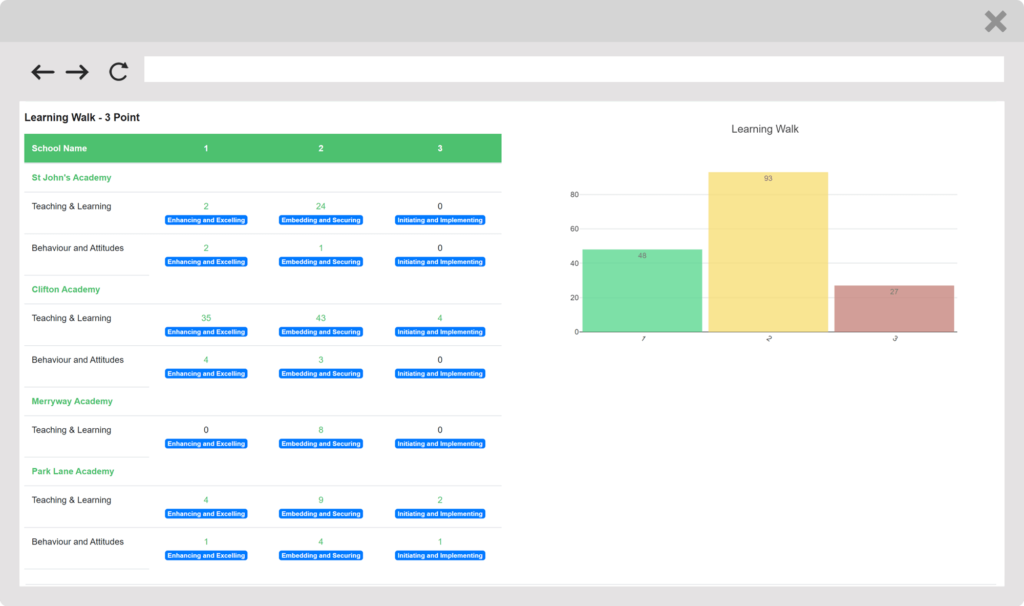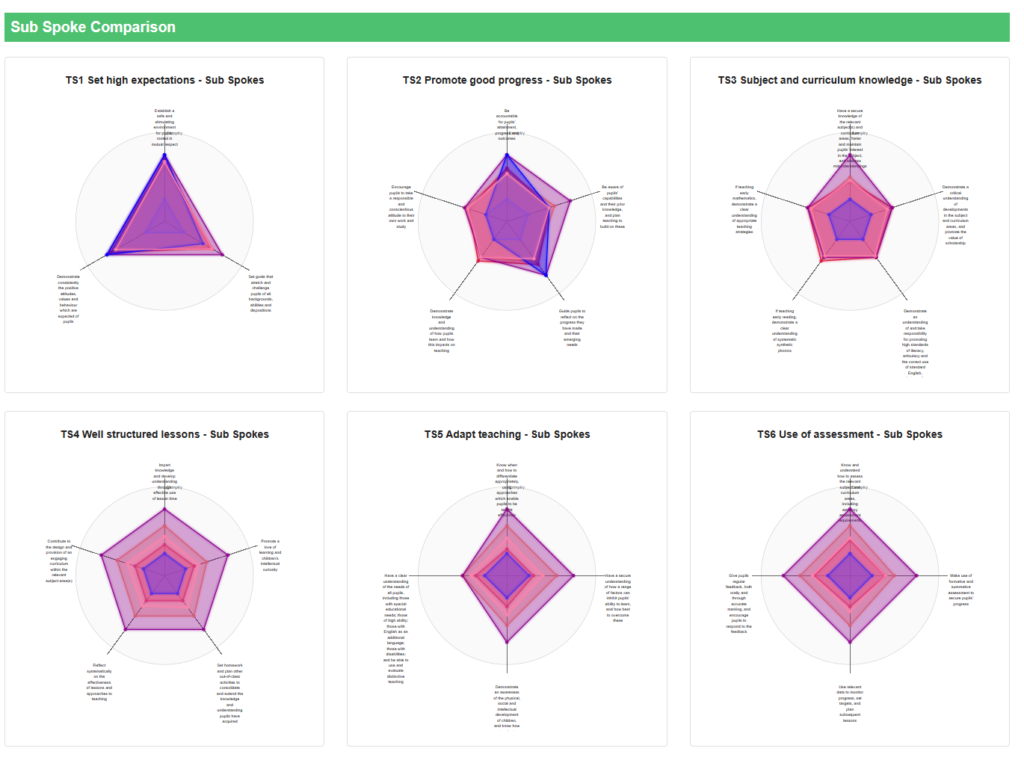Special Schools dedicate so much time and resource to ensuring their provision truly meets the…
Deep Dives and Quality Assurance in Lessons Learned
Deep Dives and Inspections are now synonymous with one another, but the deep dive process has been found to be a very useful developmental one.
Lessons Learned makes deep dives, dip dives and every other Quality Assurance process easier, faster and more effective in just 4 simple steps:
1. Gather Evidence
Begin by deciding whether to use our forms or your own. Everything is tailored to your organisation and the processes you follow.
Anyone in school can complete deep dive forms on tablets, laptops or any other internet connected device.
Combine guidance, templated fields, descriptors and drop downs to ensure you cover all the areas of focus you have during any activity – forms can even differ for different subjects or different foci.
Structured forms will ensure a common language and common approaches to deep dives across the school.
Capture Development Notes (WWW / EBIs) and share them with relevant staff to be actioned and addressed. Forms are completed (by an individual or multiple people) and published when finished.
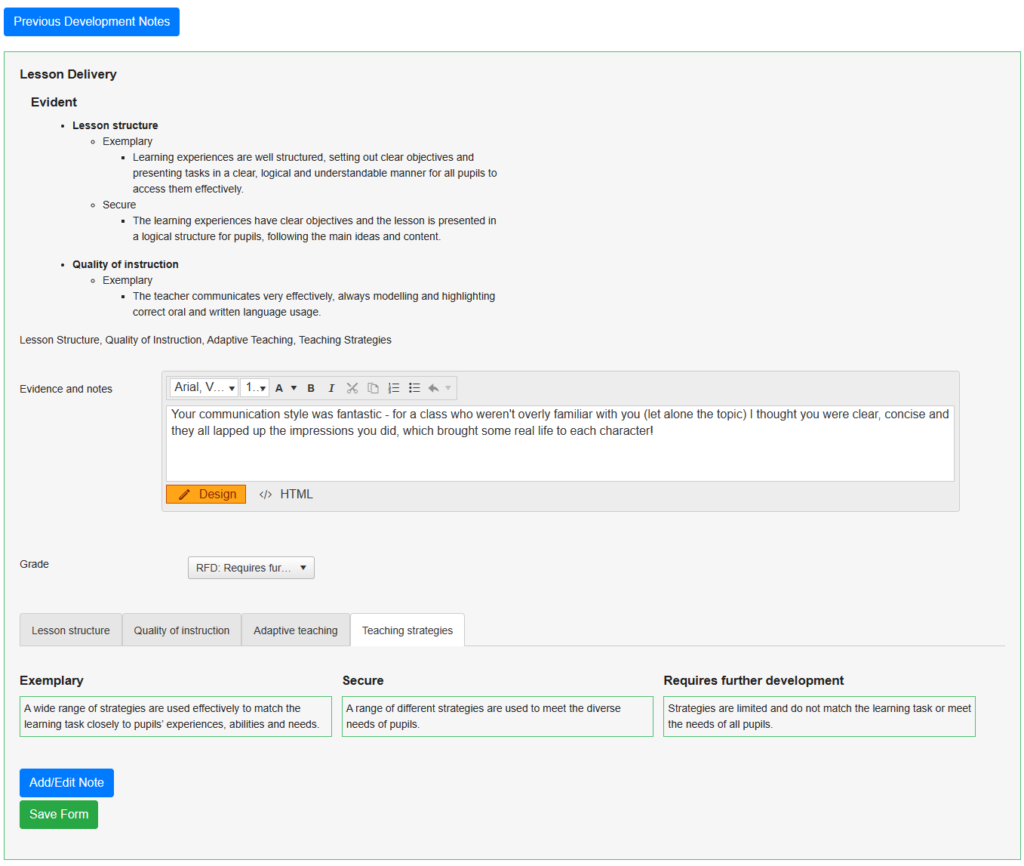
2. Undertake Analysis
Enter anything into Lessons Learned and decide who sees it. You choose when and where it shows.
Any data marked for analysis appears in reports instantly and our graphs, charts and tables give a clear picture of the key themes arising from any deep dive activity.
Development notes logged as part of the process show in tables and charts, highlighting areas of strength and development.
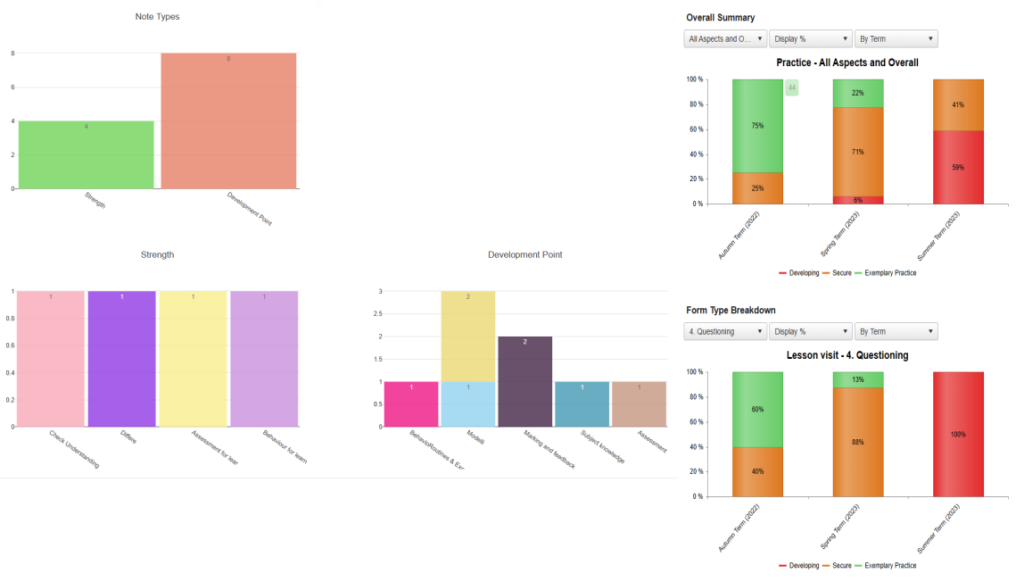
3. Plan and Action
Each co-ordinator or department head has access to their own pages for planning and action.
Each staff member can log actions and evidence to show how they have addressed any development notes coming out of deep dives.
All identified development notes can be used as evidence in CPD requests, to inform appraisal targets or used as part of school and departmental Development Plans.
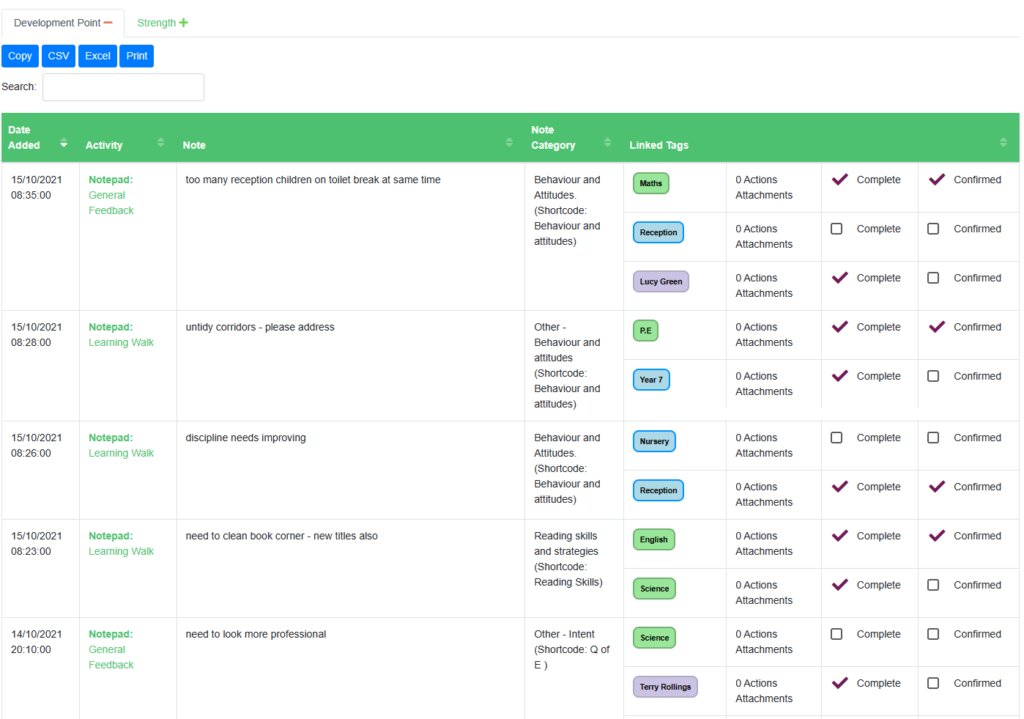
4. Review
Future deep dives can use original forms as the basis for new ones, drawing out any previously identified development notes and whether they were actioned.
Reporting pages continue to update, highlighting progress over time as well as any new areas for development your cycle might have identified.
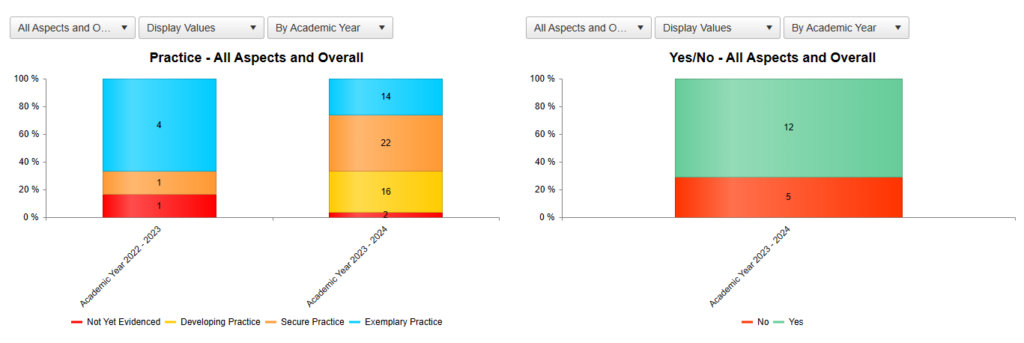
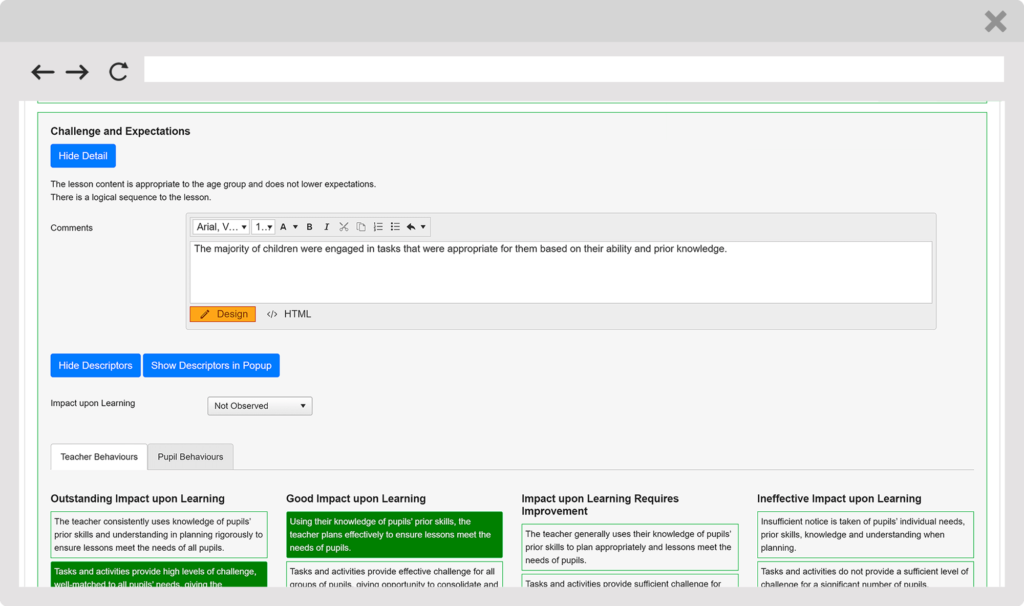
| 1 Module | 2 Modules | 3 Modules | 4 Modules | |
|---|---|---|---|---|
| Primary | ||||
| 1 Year | £875/year | £975/year | £1075/year | £1175/year |
| 3 Year | £775/year | £875/year | £975/year | £1075/year |
| Prices are exclusive of VAT. First year set up fee applies (between £200 - £250, depending on modules taken). | ||||
| Secondary | ||||
| 1 Year | £975/year | £1075/year | £1175/year | £1275/year |
| 3 Year | £875/year | £975/year | £1075/year | £1175/year |
| Prices are exclusive of VAT. First year set up fee applies (between £300 - £350, depending on modules taken). | ||||

